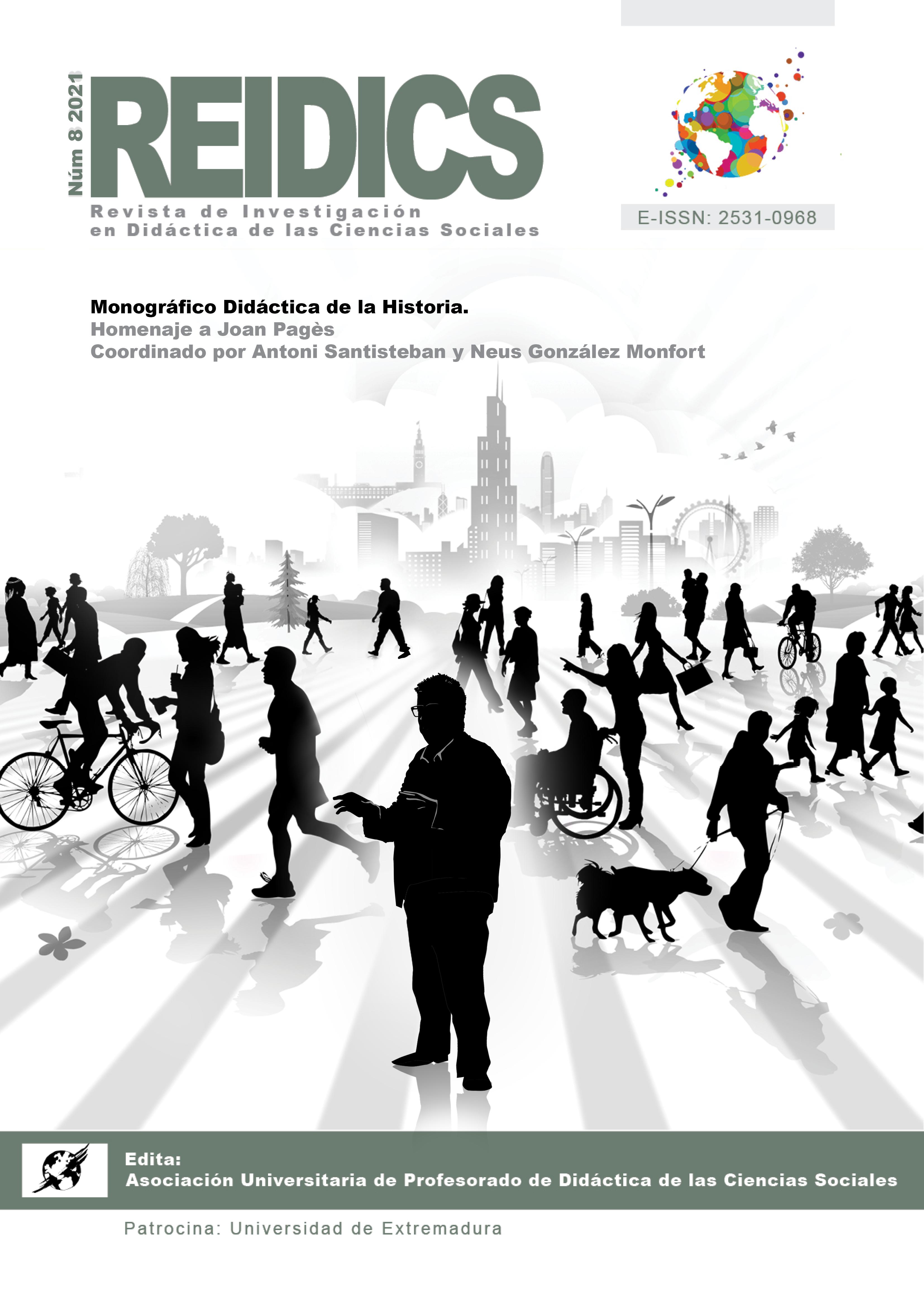Object based learning in Early Years Education: evaluative study of a teaching intervention
DOI:
https://doi.org/10.17398/2531-0968.08.224Keywords:
formal education, early childhood education, history education, cultural heritageAbstract
Objects can be an ideal resource to work with historical contents at an early age since they are tangible elements that let students experience directly and allow the introduction of the past in a motivating way. However, evaluative research regarding the analysis of the benefits that such strategy has are scarce. Here lies the importance of this research. This research focuses its attention on the analysis and assessment of the learning outcomes achieved by the students after the implementation of a teaching intervention designed ad hoc for this study. The final aim of this study is to specify the educational implications that object based learning strategies has for the development of thinking skills. This is a quasi-experimental study with a qualitative approach. The data have been collected through participant observation, participant intervention recordings, and a rating scale developed by the students. The intervention was carried out in a 5-year-old classroom, with a total of 19 participants. After the implementation, an improvement can be seen in relation to certain observation and description skills and the process of interaction with the sources. The students also expressed the high level of motivation they experienced. All this leads to think that the introduction of these strategies in Early Years Education favor the development of the mentioned thinking skills among the young learners.
Downloads
Published
Issue
Section
License
Aquellos autores/as que tengan publicaciones con esta revista, aceptan los términos siguientes:
- Los autores/as conservarán sus derechos de autoría y garantizarán a la revista el derecho de primera publicación de su obra, el cual estará simultáneamente sujeto a la Licencia de reconocimiento de Creative Commons 4.0 BY-NC-SA que permite a terceros compartir la obra siempre que se indique su autor y su primera publicación en esta revista.
- Los autores/as podrán adoptar otros acuerdos de licencia no exclusiva de distribución de la versión de la obra publicada (p. ej.: depositarla en un archivo telemático institucional o publicarla en un volumen monográfico) siempre que se indique la publicación inicial en esta revista.
- Se permite y recomienda a los autores/as difundir su obra a través de Internet (p. ej.: en archivos telemáticos institucionales o en su página web) antes y durante el proceso de envío, lo cual puede producir intercambios interesantes y aumentar las citas de la obra publicada. (Véase El efecto del acceso abierto).
- Los autores y autoras han respetado la política de autoría de esta revista.




